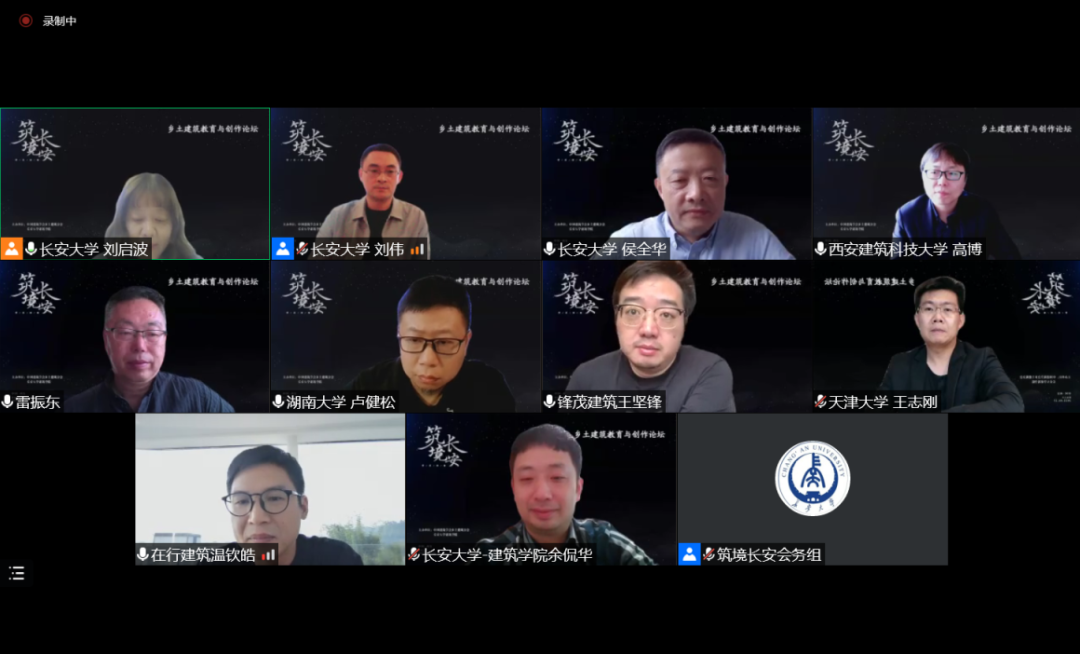On the morning of April 23, 2022, "Building in Chang'an -- Vernacular Architecture Education and Creation Forum" was held jointly by Vernacular Architecture Branch of Architectural Society of China and School of Architecture of Chang'an University.
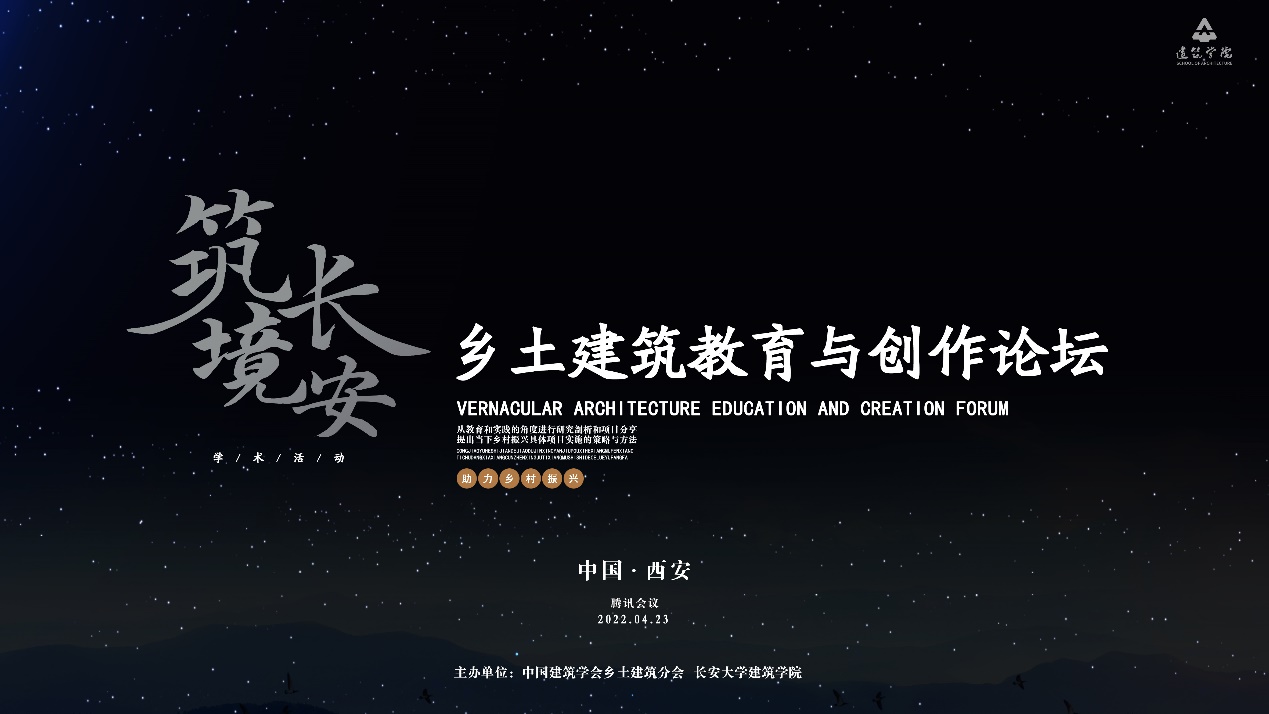
The countryside is the carrier of the gene of Chinese civilization. It is a civilization integrating life and production, society and culture, history and politics. The rural revitalization strategy is an important part of the national strategy. In recent years, rural revitalization has received increasing attention from the Party and the government, and the importance of implementing the rural revitalization strategy has been pointed out in the report of the 19th CPC National Congress and the No. 1 Document of the CPC Central Committee in 2022. Vernacular architecture, on the other hand, contains a detailed interpretation of historical architecture, regional architecture, traditional architecture, traditional dwellings, historical protection units, etc., which is conceived in the vast soil of rural revitalization. Scholars and front-line architects in architecture schools in China have tried to participate in the architectural creation under the background of rural revitalization with multiple identities and achieved fruitful results. This forum invited many well-known scholars and architects to analyze and share projects from the perspective of education and practice and put forward the strategies and methods for implementing specific projects of vernacular architecture.
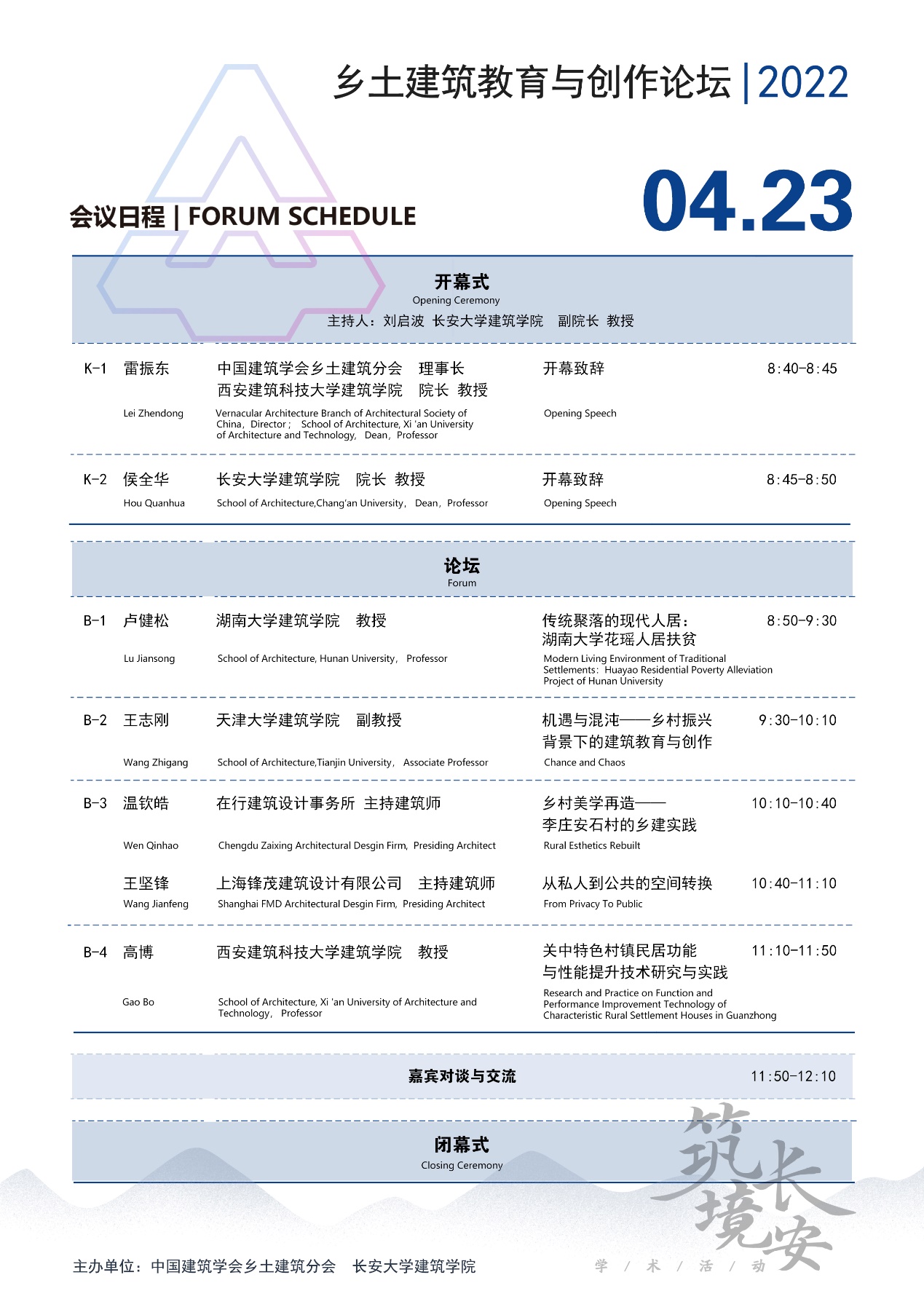
The speeches was given by Prof. Lei Zhendong, chairman of Vernacular Architecture Branch and Dean of School of Architecture, Xi 'an University of Architecture and Technology, Prof. Hou Quanhua, Dean of School of Architecture, Chang 'an University. The forum presided over by Prof. Liu Qibo, vice Dean of School of Architecture, Chang 'an University. Prof. Yu Kanhua, vice Dean, and Associate Professor Liu Wei, Director of Vernacular Architecture Branch attended the forum. Five speakers are: Professor Lu Jiansong, Deputy dean of the School of Architecture, Hunan University; Wang Zhigang, Associate professor, School of Architecture, Tianjin University; Wen Qinhao, principal architect of Chengdu Zhigang Architectural Design Firm; Architect Wang Jianfeng Shanghai Fengmao Architectural Design Co., LTD.; Professor Gao Bo, Vice dean of School of Architecture, Xi 'an University of Architecture and Technology. The forum adopts the form of online conference, and the main content of the speech is as follows:
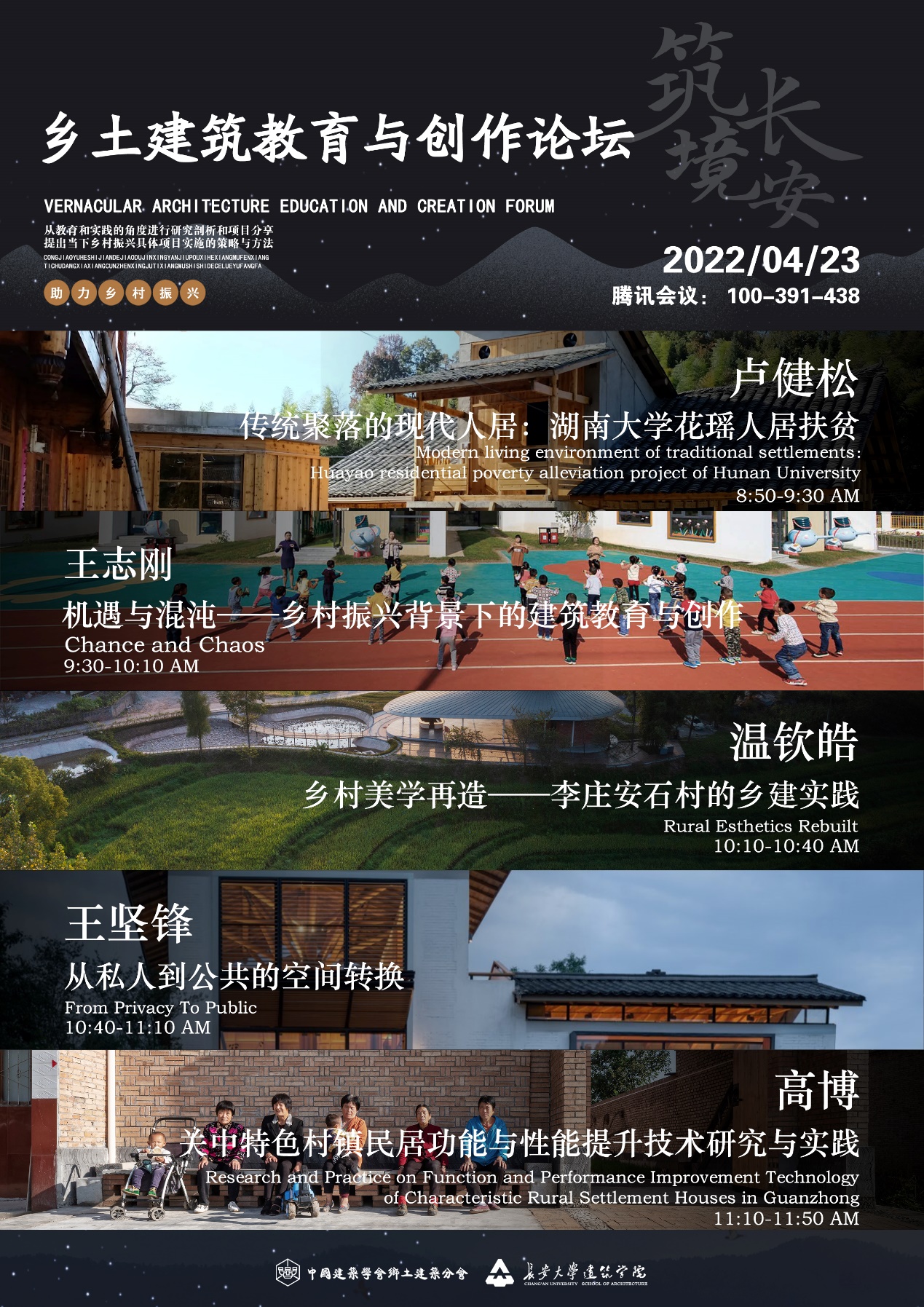
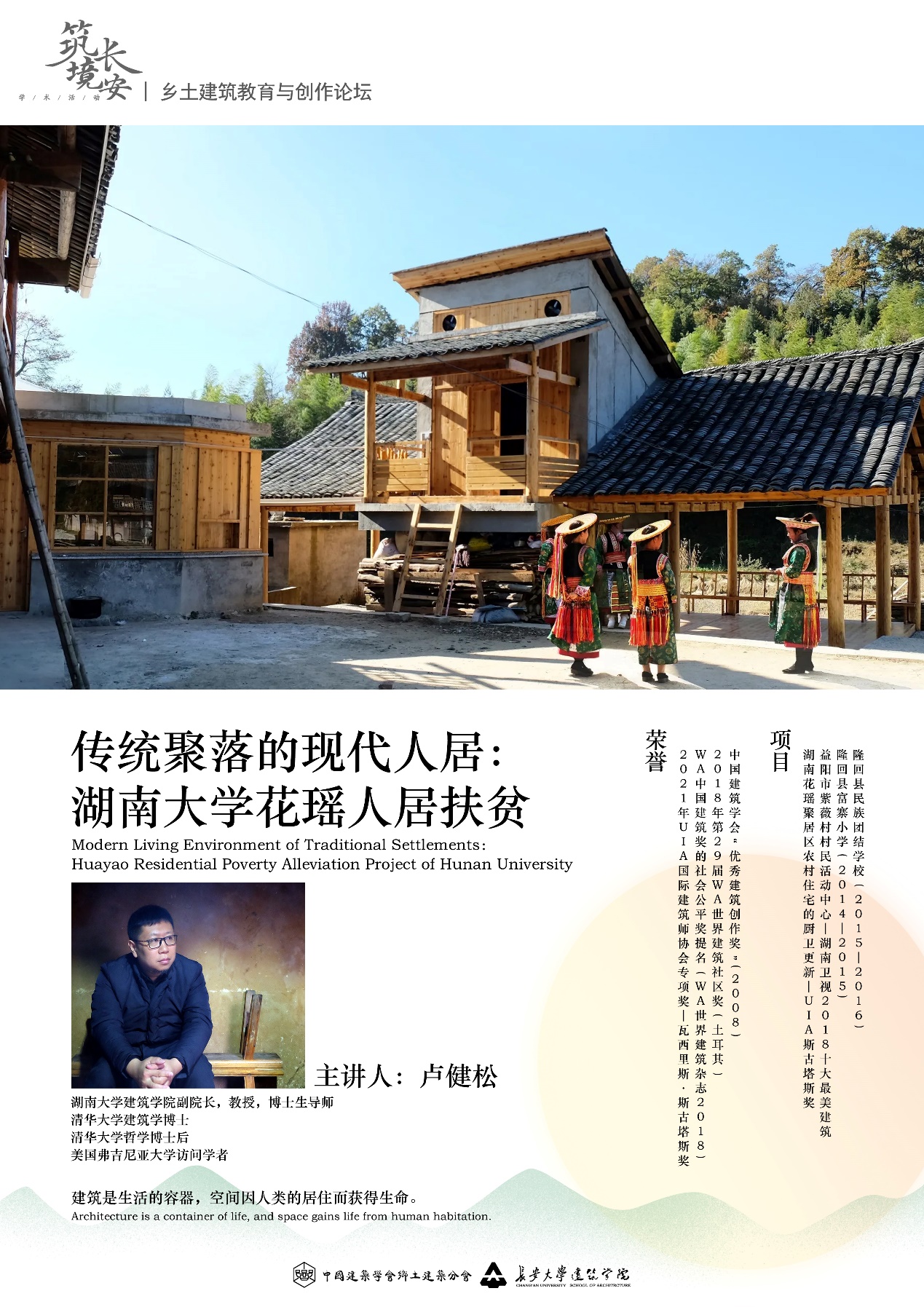
Professor Lu Jiansong gave a wonderful speech entitled "Modern Human Settlements in Traditional Settlements -- Hua Yao Human Settlements in Hunan University poverty Alleviation". Starting from the book "Building for the Poor" written by Egyptian architect Hassan Fathey, Professor Lu further illustrated the design idea of "the loss of courtesy leads to the loss of wilderness" by citing the buildings of famous architects such as Louis Barragan and Sejima Kazuyo. Through years of rural architecture practice experience, he summed up six random factors affecting rural construction: climate and form, material and structure, humanity and life, humor and wisdom, evolution and iteration, culture and interpretation. In constant practice, Professor Lu put forward that the design of vernacular architecture is the daily life of residents, and condensed it into ten points: 1. observation is necessary; 2. listening can be a way; 3. system is a kind of abstraction; 4. reason is a deep mechanism; 5. planning is a kind of guidance; 6. phenomenon is a must; 7. iteration is a method of progress; 8. accuracy is a demonstration; 9. potential difference is a kind of energy; 10. roughness is a kind of power.
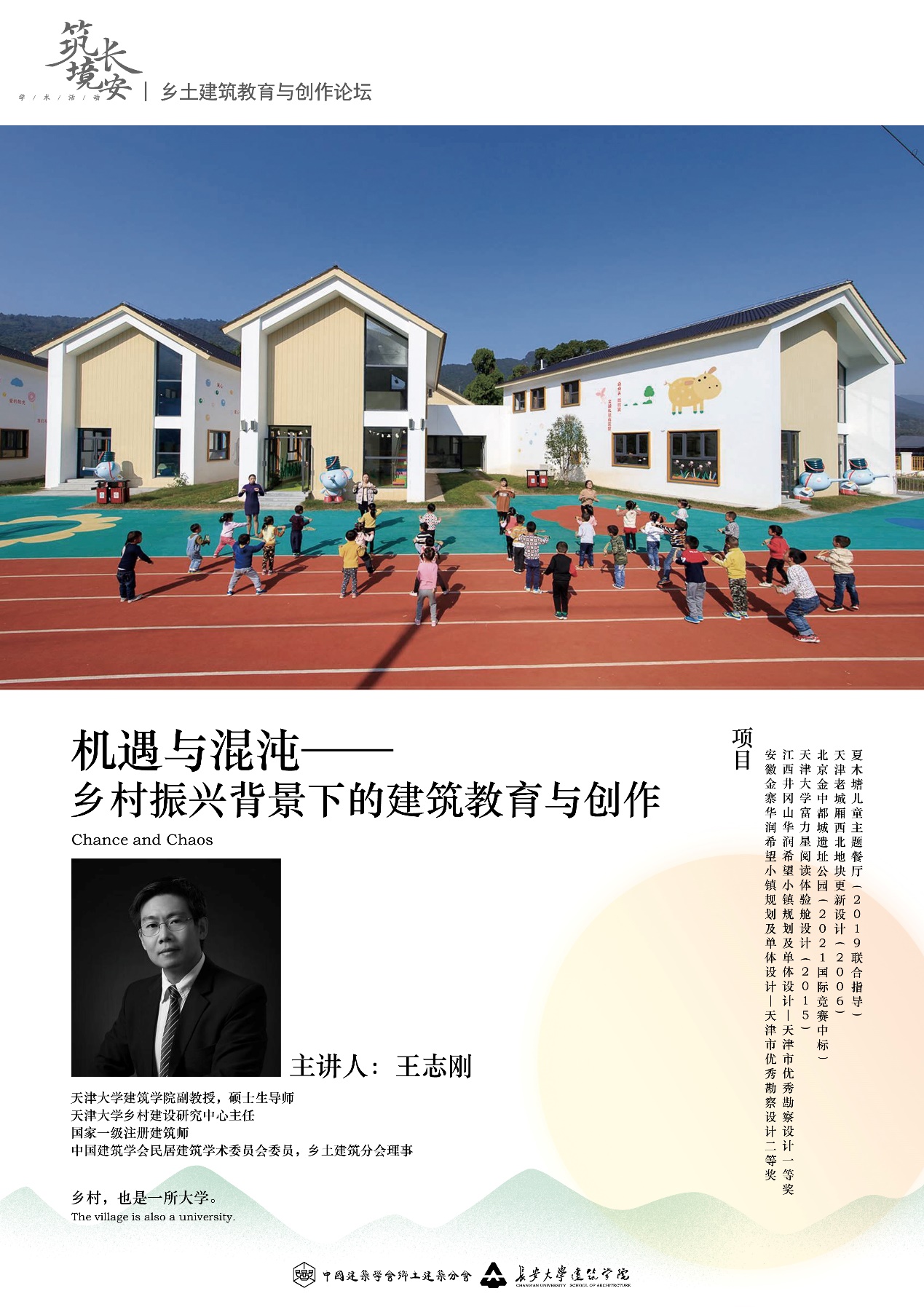
Wang Zhigang explained the unique temperament and dignity of vernacular architecture step by step from a book, a house and a small town. In the lecture, he presented some classic works he visited during his study visit in the United States, as well as practical projects hosted by the Rural Construction Research Center of Tianjin University. Mr. Wang pointed out that rural revitalization is both an opportunity and a challenge. Rural university is not only a platform for practice and innovation, but also a classroom for cultivating ability and quality, as well as an excellent case for learning architectural design. Rural areas are chaotic compared with cities. Architects need to improve their observation, thinking, execution and understanding of their social responsibilities in order to find new opportunities. Young architects should face vernacular architecture and rural revitalization with a new understanding and real practice with a pragmatic and open attitude.
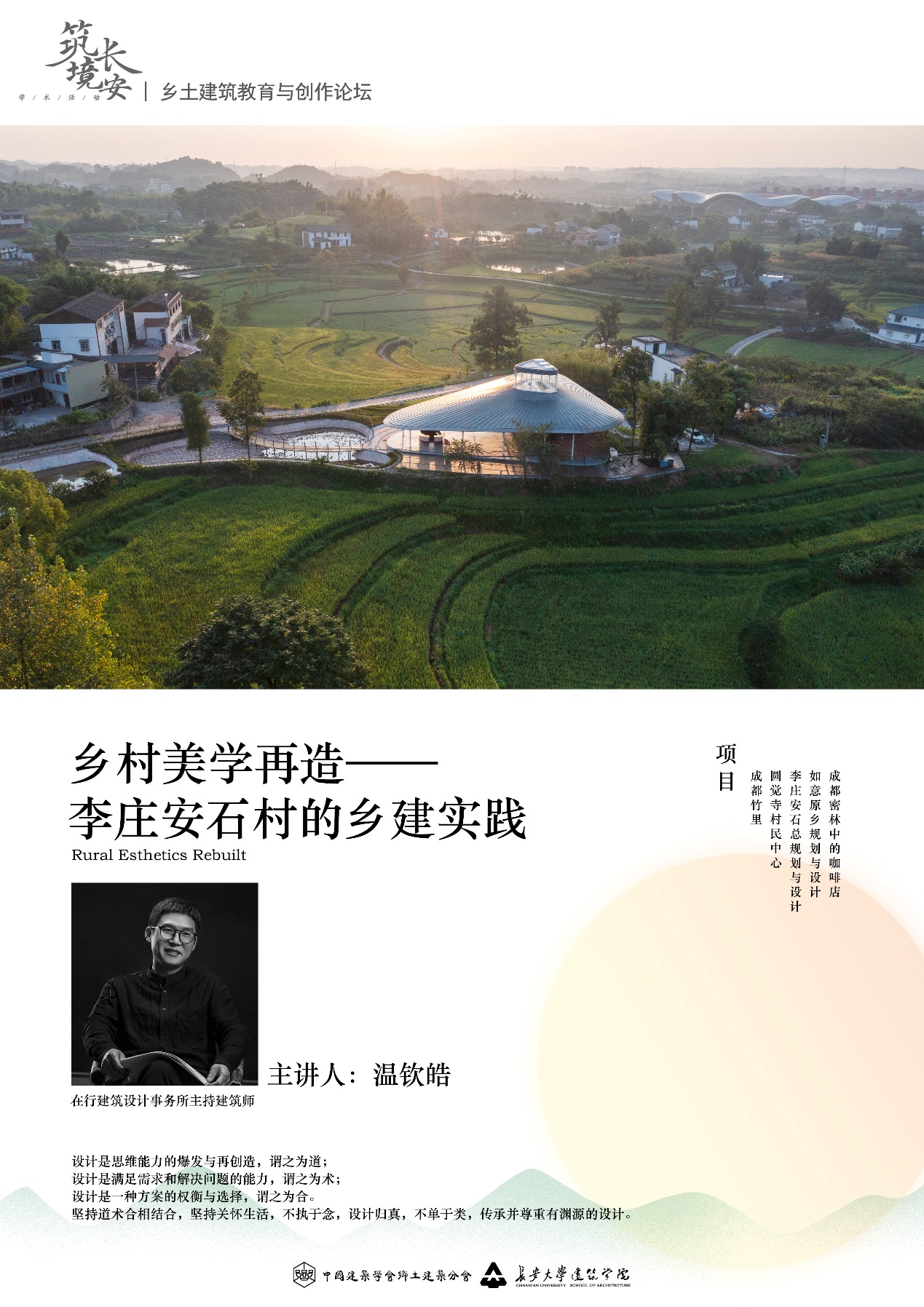
From the perspective of a front-line architect, Wen QinHao shared his building practices in villages. He thinks that in the process of rural construction needs to solve many practical problems, such as material, social, interest connection problems, rural revitalization of the first industrial revitalization. Architects should think from the perspective of planning and planning to solve the problem. Next, Mr. Wen expounded the practice of Anshi Village from the four aspects of top-level design, cultural positioning, design planning and architectural scheme, and explained in detail the core driving force, development mode, property rights system reform, cultural IP positioning, overall operation, planning structure and other contents in the design. Finally, he introduced the design and construction process of Zunsheng courtyard and some cases without drawings.
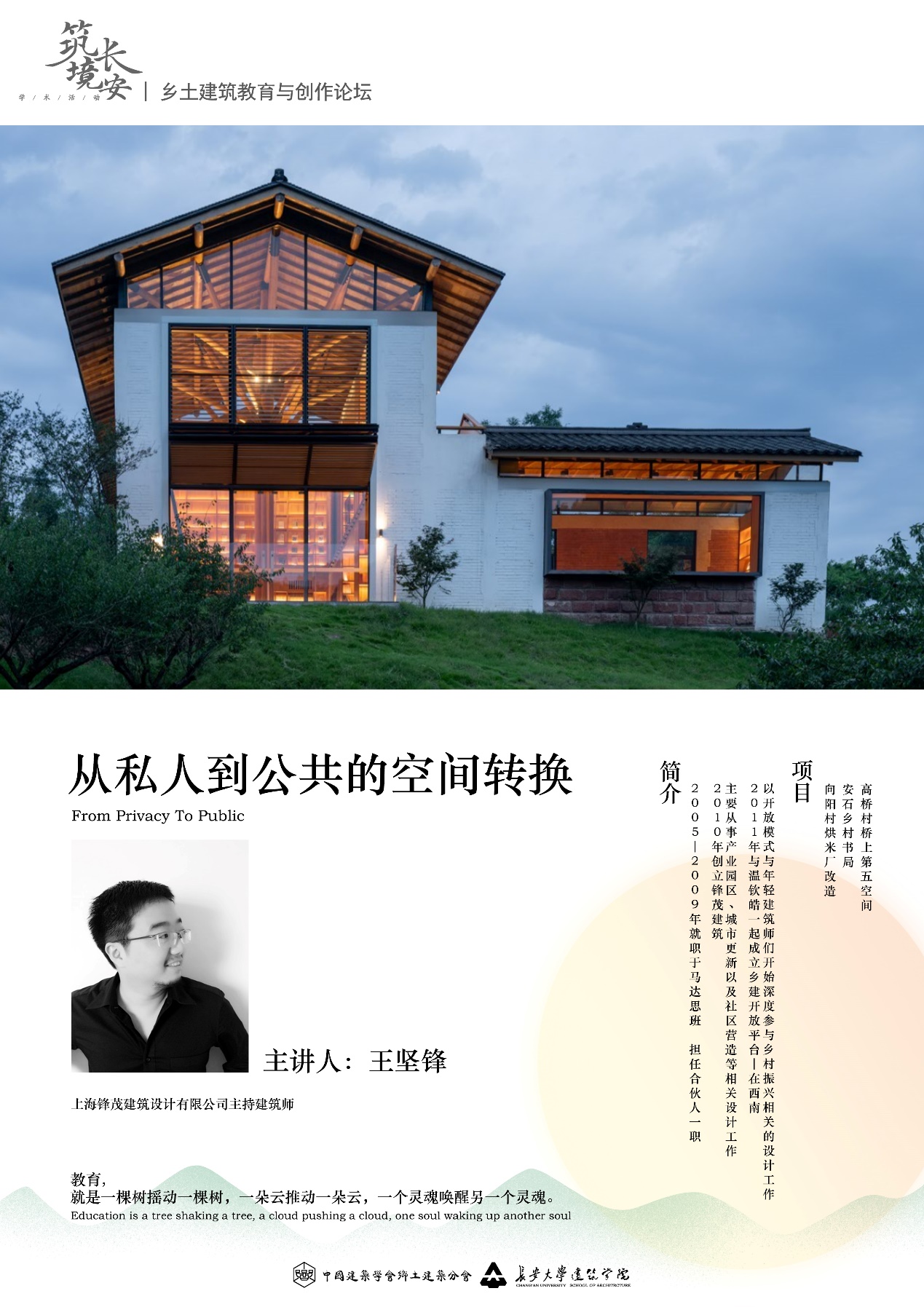
Wang Jianfeng, the presiding designer of Shanghai Fengmao Architectural Design Co., LTD., took the transformation of Anshi Bookstore as an example to explain the transformation ideas from private to public space to us from the perspective of construction. The homestead was originally a private residential space. Based on the full analysis of the current situation of the building, he proposed "how to implant public space into a daily living space?" In the end, he chose to break through unnecessary walls and implant a "tree" shaped structure to create a reading space. In the actual construction, he also polished the details of the building according to the actual needs of the library and carved the beauty of the building even though it was far away in the countryside. Mr. Wang believes that modern technology should be combined with rural architecture design to create a unique rural life experience and proposes an "idyllic dream" -- the countryside to make life better.
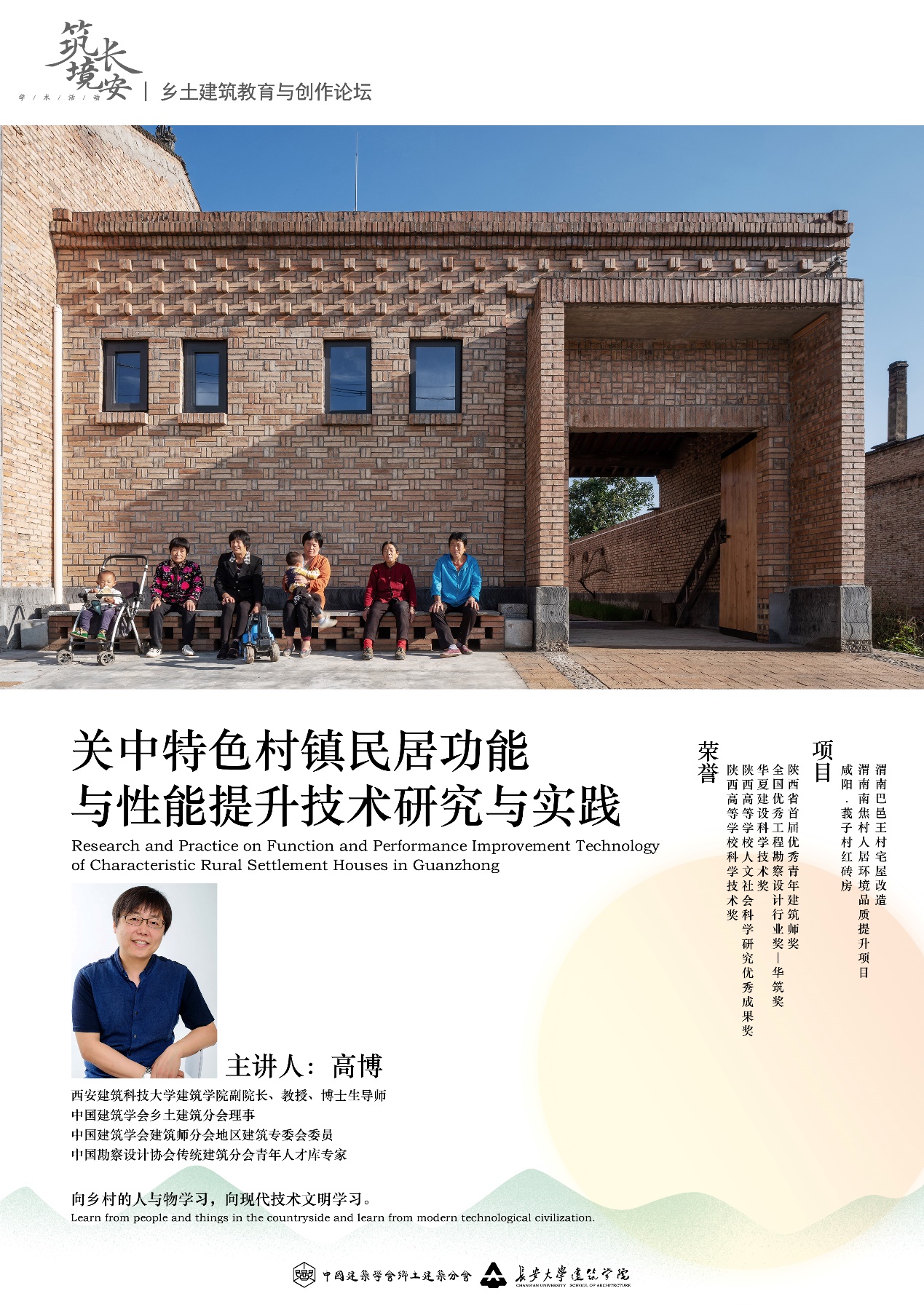
Professor Gao Bo gave Guanzhong Rural Residential Features and Performance Improvements in Technology Research and the Practice speech, he emphasized on the characteristics of villages and towns, and deeply discussed the architectural function and the connection between the building performance, emphatically from the comfort, thermal comfort, air quality, structural integrity, etc. At the same time, he analyzed the settlement characteristics, architectural layout and architectural interface of rural villages in Guanzhong from the meso and micro perspectives and summarized the functional performance improvement mode of rural housing. In the end, Mr. Gao made a detailed analysis and interpretation of the three practical projects, Nanjiao folk house in Weinan, Ezi red brick house in Xianyang and Bayi residence in Weinan, so that the audience had a deep understanding and understanding of the function and performance improvement technology of Guanzhong characteristic folk house.
After finishing their wonderful speeches, the guests also had a warm exchange of views on the education and creation of vernacular architecture in the context of rural revitalization, including field investigation, joint courses and school-enterprise cooperation. With nearly 500 participants online, the forum was a complete success.
